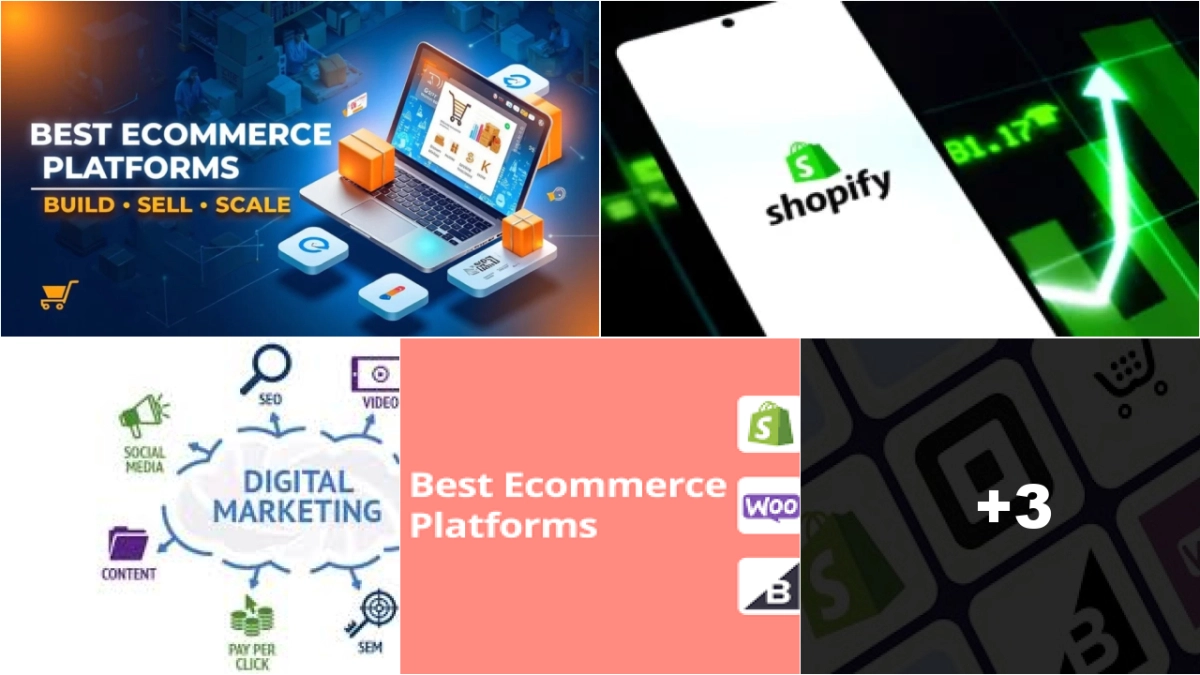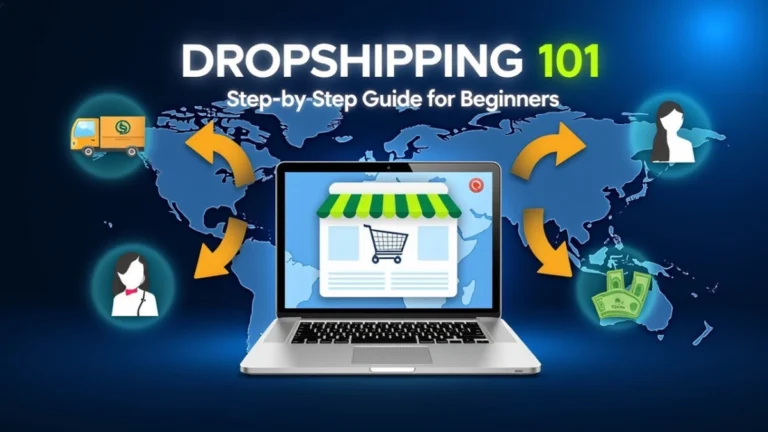Best Ecommerce Platforms _ Where to Build, Sell, and Scale Your Online Store
In the bustling world of online shopping, choosing the right eCommerce platform is crucial for success. With so many options available, it can be overwhelming to find the perfect fit for building, selling, and scaling an online store. Let’s dive into some of the best eCommerce platforms that cater to various needs and budgets.
First up is Shopify, a favorite among many entrepreneurs. With its user-friendly interface, Shopify makes it easy to set up an online store in no time. It offers a plethora of customizable templates, allowing users to create a unique brand identity. Plus, Shopify’s robust app store provides tools for inventory management, marketing, and customer service, making it a one-stop shop for eCommerce needs. Whether selling physical products or digital downloads, Shopify has the features to support growth.

Next on the list is WooCommerce, a powerful plugin for WordPress users. For those already familiar with WordPress, WooCommerce seamlessly integrates into existing sites, turning them into fully functional online stores. It’s highly customizable, allowing users to tweak everything from product pages to checkout processes. With a vast library of extensions, WooCommerce can adapt to any business model, whether it’s a small boutique or a large retailer.
For those looking for a more hands-on approach, BigCommerce is worth considering. This platform is designed for scalability, making it ideal for businesses that anticipate rapid growth. BigCommerce offers advanced features like multi-channel selling, allowing users to sell on platforms like Amazon and eBay directly from their store. Its built-in SEO tools help improve visibility, ensuring that products reach a wider audience.
Another strong contender is Squarespace, known for its stunning design capabilities. Perfect for creatives and brands that prioritize aesthetics, Squarespace offers beautifully crafted templates that showcase products in the best light. While it may not have as many eCommerce-specific features as Shopify or WooCommerce, its simplicity and elegance make it a great choice for those focused on branding and storytelling.
If budget is a concern, Wix is an excellent option. This platform provides an easy drag-and-drop interface, making it accessible for beginners. Wix offers a range of templates and eCommerce features, allowing users to create a professional-looking online store without breaking the bank. While it may not have the advanced capabilities of some competitors, it’s perfect for small businesses or those just starting out.
For those who want to dive into the world of dropshipping, Oberlo is a fantastic choice. This platform integrates with Shopify, allowing users to easily import products from suppliers and sell them without holding inventory. Oberlo simplifies the dropshipping process, making it easy to find trending products and manage orders. It’s a great way to start an online business with minimal upfront investment.
Magento is another powerful platform, but it’s best suited for larger businesses with technical expertise. Known for its flexibility and scalability, Magento allows for extensive customization and can handle high volumes of traffic. However, it requires a bit more technical know-how to set up and maintain, making it less ideal for beginners.

For those focused on social selling, Facebook Shops and Instagram Shopping are game-changers. These platforms allow users to create an online store directly within their social media profiles. With millions of active users, selling on social media can significantly boost visibility and sales. It’s a great way to reach customers where they already spend their time.
When choosing an eCommerce platform, it’s essential to consider factors like ease of use, scalability, and specific business needs. Each platform has its strengths and weaknesses, so it’s important to evaluate what features matter most. For example, if customization is a priority, WooCommerce or Magento might be the way to go. If simplicity and speed are key, Shopify or Wix could be the best fit.
Additionally, consider the payment options available on each platform. A variety of payment gateways can enhance customer experience and increase sales. Look for platforms that support popular options like PayPal, Stripe, and credit card payments to cater to a broader audience.
Don’t forget about customer support and resources. A platform with robust customer service can save time and frustration down the line. Look for platforms that offer tutorials, forums, and responsive support teams to assist with any challenges that arise.
Finally, it’s essential to think about future growth. As businesses evolve, their needs may change. Choosing a platform that can scale with the business is crucial for long-term success. Platforms like BigCommerce and Shopify are designed to grow alongside businesses, making them excellent choices for those with big ambitions.
In conclusion, the best eCommerce platform depends on individual needs, budget, and business goals. Whether it’s the user-friendly Shopify, the customizable WooCommerce, or the visually stunning Squarespace, there’s a perfect fit for every entrepreneur. By carefully evaluating options and considering future growth, anyone can build, sell, and scale a successful online store. Happy selling!
At Online Work by MedLife Guide, our content comes from a team of real experts. We have digital marketers, e-commerce specialists, affiliate strategists, SEO analysts, and tech-savvy freelancers. Each member has years of real-world experience in making money online.
We cover topics like Amazon selling, Shopify store building, social media monetization, and dropshipping. Every subject is backed by those who have tested and experienced success and failure. We don’t just write about earning online we live it every day.
Our goal is to share practical, proven strategies, not just theories. With team members worldwide, we offer diverse perspectives and fresh insights to help our readers succeed in real, sustainable ways. We’re dedicated to transparency and honesty, because your trust matters.







